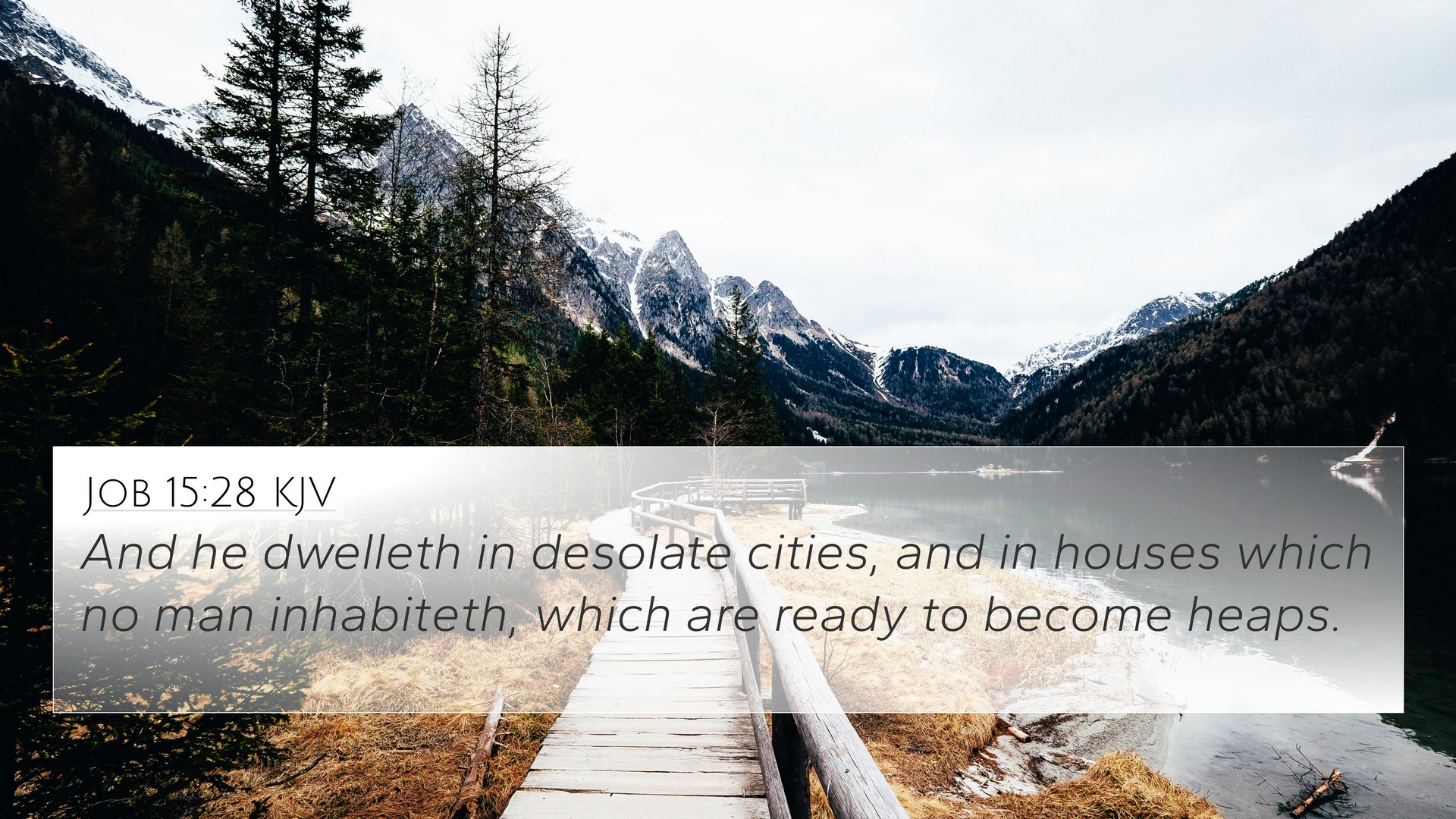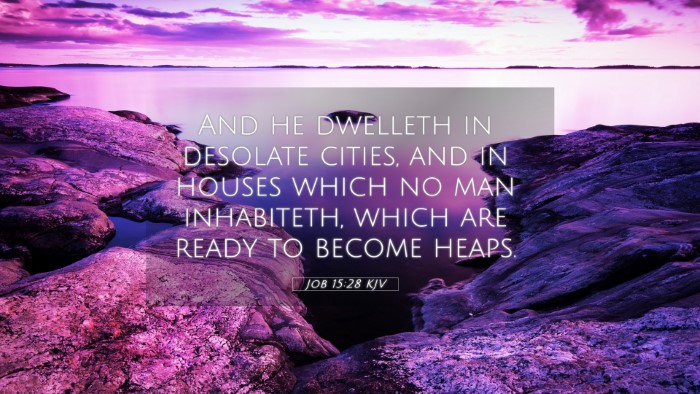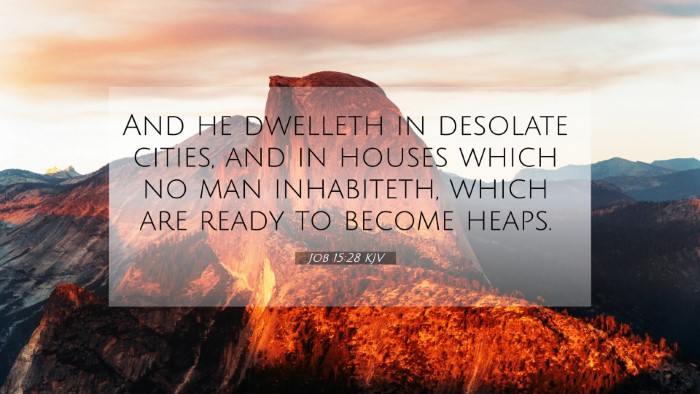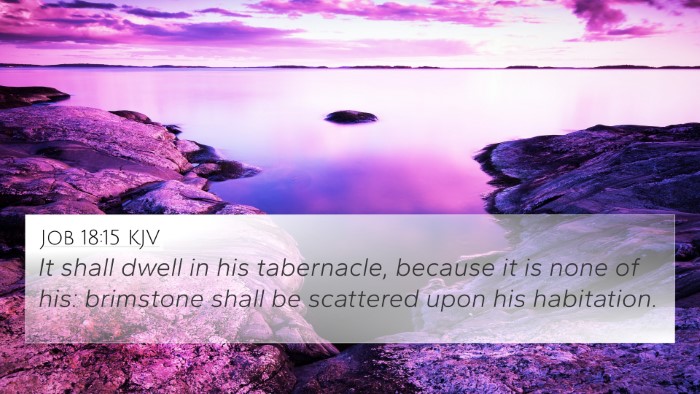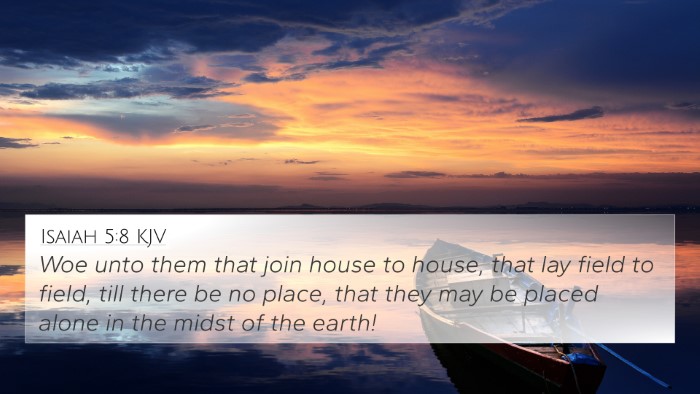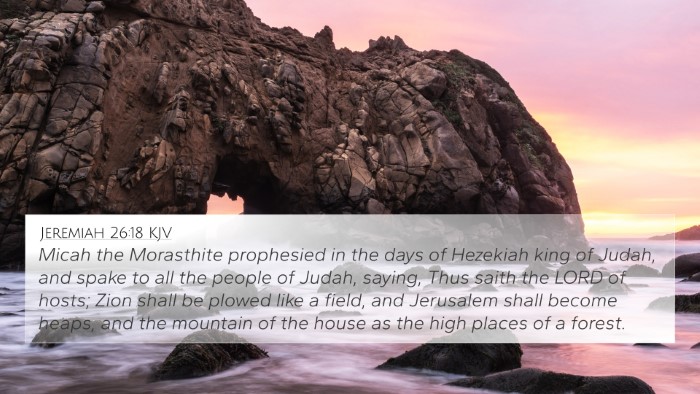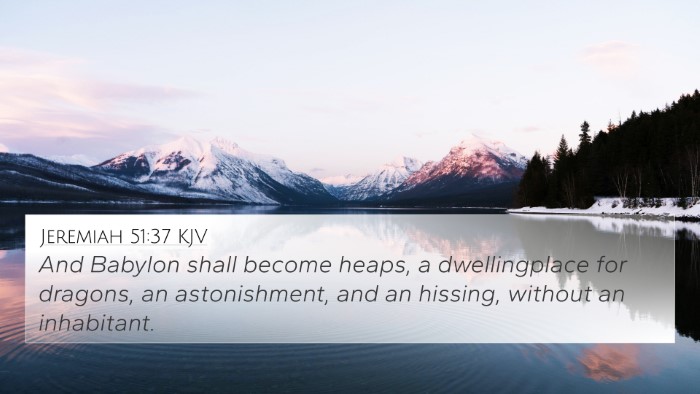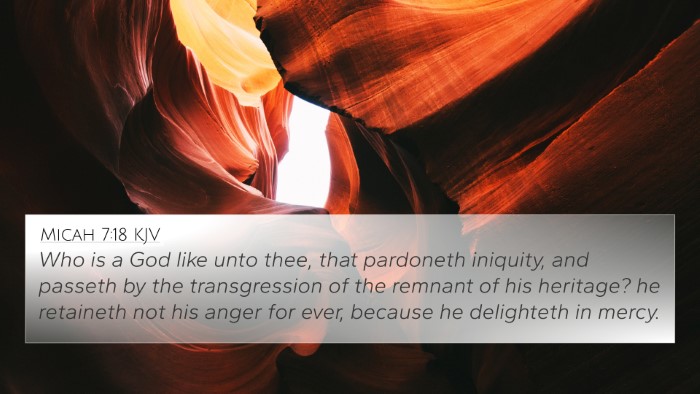Understanding Job 15:28 - A Comprehensive Analysis
Job 15:28 states, "And he dwelleth in desolate cities, and in houses which no man inhabiteth, which are ready to be in heaps." This verse is rich in meaning and signifies the plight of those who are distant from God and the consequences of their actions. The following analysis draws upon insights from public domain commentaries to explore its significance.
Summary of Themes
The themes within Job 15:28 highlight several critical aspects:
- Desolation and Ruin: The imagery of desolate cities suggests a larger spiritual emptiness.
- The Nature of Sin: Sin leads to spiritual isolation and ultimately destruction.
- God’s Judgment: The fate of the wicked is depicted through their abandonment and desolation.
- Consequences of Rebellion: The outcome of rejecting God is made evident through vivid metaphors.
- Intercession of Righteousness: The implied contrast between the wicked and the righteous provides a lens on divine justice.
Commentary Insights
Matthew Henry’s Commentary: Henry emphasizes that Job’s friends, in their attempt to defend God’s justice, present strong arguments, illustrating the consequences of a sinful life. They reflect upon the state of the wicked, who are constantly pursued by despair, illustrated by the "desolate cities." The emptiness of these locations symbolizes the absence of God’s favor and underscores the futility of evil.
Albert Barnes’ Notes: Barnes elaborates on the significance of dwelling in uninhabited homes, representing the ultimate loneliness that accompanies disobedience to God. He notes that the mention of "heaps" indicates ruin that will surely unfold for the wicked, aligning with the notion of inevitable judgment that resonates through other biblical texts.
Adam Clarke’s Commentary: Clarke points out the metaphor of desolation, suggesting that it reflects both physical and spiritual barrenness. He argues that cities without inhabitants symbolize the spiritual state of those who have turned from God. The verse serves as a warning against the transient nature of worldly achievements when disconnected from divine purpose.
Cross-References and Biblical Connections
Job 15:28 is intricately connected with several other scriptures that enhance its meaning:
- Psalms 107:34: "A fruitful land into barrenness, for the wickedness of them that dwell therein." This parallels the theme of desolation brought about by wickedness.
- Jeremiah 49:2: "Therefore, behold, the days come, saith the Lord, that I will cause an alarm of war to be heard in Rabbah of the Ammonites; and it shall be a desolate heap..." This supports the concept of cities left desolate due to judgment.
- Isaiah 1:7: "Your country is desolate, your cities are burned with fire..." which reflects on the spiritual consequences of collective sin.
- Lamentations 5:18: "Because of the mountain of Zion, which is desolate, the foxes walk upon it." This emphasizes desolation as a result of divine abandonment.
- Nahum 3:19: "There is no healing of thy bruise; thy wound is grievous: all that hear the brute of thee shall clap the hands over thee..." highlighting a similar theme of inevitable ruination.
- Matthew 12:43-45: "When the unclean spirit is gone out of a man, he walketh through dry places, seeking rest..." This signifies the emptiness of a life devoid of God.
- Revelation 18:2: "And he cried mightily with a strong voice, saying, Babylon the great is fallen, is fallen..." pointing to ultimate judgment resulting in desolation.
Thematic Connections
Job 15:28 resonates with several thematic connections found throughout the Bible:
- The Theme of Judgment: Many scriptures discuss God’s judgment on the wicked (e.g., Romans 2:6).
- Consequences of Sin: The Bible is replete with references that underscore the consequences of turning away from God (e.g., Galatians 6:7-8).
- Spiritual Barrenness: This theme appears in parables and lessons underscoring the need for righteousness (e.g., John 15:5).
- Divine Justice: The faithful are often promised restoration (e.g., Isaiah 61:7) contrasting with the desolation of the unfaithful.
Methods for Cross-Referencing
Utilizing tools for Bible cross-referencing can deepen the analysis of Job 15:28. Here are some methods:
- Bible Concordance: A comprehensive index that aids in identifying keywords and their occurrences in scripture.
- Cross-Reference Bible Study: Engage in comparing verses that share similar themes and messages.
- Bible Chain References: Following a linked chain of verses can provide a broader understanding of biblical topics.
- Inter-Biblical Dialogue: Exploring connections between both Old and New Testament scriptures enriches interpretative insights.
Conclusion
Job 15:28 serves as a profound reminder of the inevitable consequences of a life lived apart from God. This analysis not only sheds light on the specific verse but also encourages a deeper exploration of connected themes and relevant scriptures throughout the Bible. Embracing these connections may enrich one's understanding of God's justice, mercy, and the overarching narrative of scripture.
